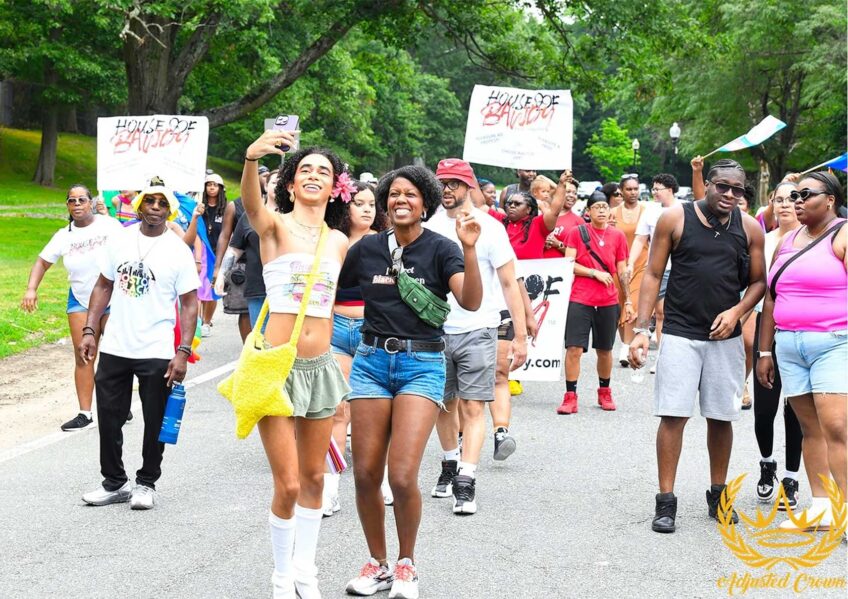At a time when much of the talk surrounding African American students focuses on achievement gaps and flagging test scores, Harvard University is teaming up with Hollywood icon Denzel Washington to give Greater Boston a reason to celebrate the academic brilliance of a group of phenomenal achievers whose tale, until now, has been largely overlooked.
The university will roll out the red carpet next Tuesday to host an exclusive black-tie premiere of Washington’s new film, “The Great Debaters,” at its Cambridge campus, The Harvard Foundation announced last week. The Dec. 18 event comes one week in advance of the film’s official release on Christmas Day.
Washington stars in and directed the film, which is based on the story of a championship team of debaters from Wiley College, a small, historically black institution in Marshall, Texas, founded in 1873 by the United Methodist Church to educate freed slaves.
With crew in tow, Washington — in the director’s chair for only the second time, his first turn coming on the 2002 biopic “Antwone Fisher” — filmed scenes around Harvard this summer, even shooting in the Memorial Hall at Sanders Theatre.
S. Allen Counter, director of The Harvard Foundation, told the Harvard Crimson newspaper that Washington had promised to debut the film at Harvard “in light of the story’s location and Counter’s help in navigating Harvard’s complicated filming guidelines,” which famously restrict media access to shooting on the campus itself.
“It’s officially part of Harvard’s history, and the movie features Harvard. So we thought it appropriate for it to premiere here,” Counter told the Crimson.
In front of the camera, Washington plays Melvin B. Tolson, leader of Wiley’s debate team and an acclaimed poet whose works earned him the title poet laureate of the African nation of Liberia in 1947.
In an essay published in the 2005 anthology “Affect and Power: Essays on Sex, Slavery, Race, and Religion,” Northeastern Illinois University history professor Patrick B. Miller wrote that Tolson coached his team “intensively and extensively,” leading them onto the national intercollegiate debate scene with victories “not merely over local rivals, but in competition against some of [the] best debate teams in the entire United States,” and even over a touring team from Britain’s Oxford University.
“Debating was a spectator sport in the era before television, ‘so popular,’ Tolson’s son remembered, ‘that you could charge admission and get a full house,’” Miller wrote.
One such full house was the Bovard Auditorium at the University of Southern California, where Tolson’s team defeated USC’s national championship squad before an audience of more than 1,000 onlookers in 1935.
Published reports have claimed that the Wiley team lost just one of their 75 debates on their way to the 1935 championship, an account backed up by Miller’s essay.
“The Wiley student newspaper reported only one defeat during those heady years,” he wrote. “That was to Howard University, whose coach was the legal scholar Charles Hamilton Houston, dean of the law school and mentor of Thurgood Marshall,” and the man whose name graces Harvard’s Institute for Race and Justice.
But despite their exemplary performance, Wiley’s debate team was never officially recognized as national champions, a result of the dominant racism during a period when many refused to acknowledge blacks on an equal playing field with whites.
More than 70 years after Wiley’s dominant run, Washington’s film aims to provide that recognition.
“Debaters” depicts the Wiley team defeating Harvard’s contingent for the 1935 national championship — a bit of creative license, as it was Wiley’s win over USC that clinched the crown, while the victory over Harvard is thought to have taken place in the championship’s early rounds.
During a conference call with reporters, Washington noted that the change was for dramatic impact (“Harvard is the academic standard,” he said), and acknowledged that the film does not follow historical events exactly.
In spite of any such changes, much of the advance press in the run-up to the film’s release has focused on the made-for-Hollywood nature of the Wiley team’s true-life tale.
Patricia B. Williams, a columnist for The Nation magazine, called it “a very satisfying saga of the aspiring little engine that could, then did,” and “a story that plugs into a deeply iconic American narrative: the battered underdog picked up, brushed off and ultimately saved by the success of the spotlight — and nary a moment too soon.” A recent piece in the British weekly newspaper The Observer referred to Wiley’s accomplishment as “a David and Goliath victory in an era when lynching was frequent in the Deep South.”
For many of Tolson’s charges, the victories continued after their debate careers ended, as several became successful and influential public citizens.
Arguably the most famous of Tolson’s debaters, James Farmer Jr., was one of the co-founders of the Congress of Racial Equality, a seminal civil rights organization that practiced nonviolent civil disobedience as a countermeasure to the often-violent evils of segregation in the Jim Crow South and played a pivotal role in the Freedom Summer campaign of 1962.
According to the Observer piece, Hobart Jarrett, a member of that legendary 1935 team, “followed his mentor into academia, becoming an eminent English professor at the City University of New York.”
Jarrett also lent voice to the groundbreaking cultural achievements of the Wiley team, as Miller later recounted in his essay.
“For his part, Hobart Jarrett, Wiley class of 1936, reported that the greatest of his ‘adventures in interracial debates’ occurred when his school was invited to meet Texas Christian University in Fort Worth,” Miller wrote. “This ‘was the first time a Negro college had ever encountered a white institution on its campus in the South,’ Jarrett declared. The event ‘shattered precedent’ and foreshadowed later triumphs over Jim Crow that would accumulate, albeit slowly, in the aftermath of the Second World War.
“About the Wiley-TCU debate, an editor of The Crisis [the NAACP’s official publication] noted ironically, ‘no race riots were reported.’”






